Sale
Habitats of the Basileia: Essays in Honour of Elaine M. Wainwright
Published: Jan 2024
Original price was: £65.00.£29.50Current price is: £29.50.
Habitats of the Basileia brings together some of the current and important work in biblical studies and theology, which takes seriously the demands and possibilities of applying contextual, feminist, decolonial, and ecological approaches to the critical study of the Bible and religion. The volume is inspired by the engaging work of Elaine M. Wainwright RSM; and invites us to imagine what thriving conditions and communities of the human and more-than-human might look like across multiple contexts.
- What did it mean for those living in biblical times, or for the early Jesus movement who proclaimed an alternative basileia or kingdom against the backdrop of Roman imperial power?
- What does it mean for various communities today, as we seek to understand and re-imagine what thriving conditions might look like in our own complex and often rapidly changing environments?
Written by a diverse range of biblical, theological, and religious studies scholars, the chapters in this volume collectively argue for and demonstrate the importance of context and being attuned to social location in the production of biblical and theological scholarship.
The essays are divided into three categories: the first seven chapters deal with the Gospel of Matthew, given the importance of this book to Elaine’s work. The next nine chapters explore biblical texts beyond Matthew through various lenses including those of gender, colonialism, the environment, animal studies, contextual hermeneutics, and class. The final three chapters are concerned with the legacies of both Elaine’s lifework and the broader avenues in current biblical research that have been nurtured and influenced through her efforts.
Sale
Habitats of the Basileia: Essays in Honour of Elaine M. Wainwright
Original price was: £65.00.£29.50Current price is: £29.50.
Habitats of the Basileia brings together some of the current and important work in biblical studies and theology, which takes seriously the demands and possibilities of applying contextual, feminist, decolonial, and ecological approaches to the critical study of the Bible and religion. The volume is inspired by the engaging work of Elaine M. Wainwright RSM; and invites us to imagine what thriving conditions and communities of the human and more-than-human might look like across multiple contexts.
- What did it mean for those living in biblical times, or for the early Jesus movement who proclaimed an alternative basileia or kingdom against the backdrop of Roman imperial power?
- What does it mean for various communities today, as we seek to understand and re-imagine what thriving conditions might look like in our own complex and often rapidly changing environments?
Written by a diverse range of biblical, theological, and religious studies scholars, the chapters in this volume collectively argue for and demonstrate the importance of context and being attuned to social location in the production of biblical and theological scholarship.
The essays are divided into three categories: the first seven chapters deal with the Gospel of Matthew, given the importance of this book to Elaine’s work. The next nine chapters explore biblical texts beyond Matthew through various lenses including those of gender, colonialism, the environment, animal studies, contextual hermeneutics, and class. The final three chapters are concerned with the legacies of both Elaine’s lifework and the broader avenues in current biblical research that have been nurtured and influenced through her efforts.
Sale
The Spirit of Prophecy and Reconciliation. A Festschrift for Rickie Moore.
Published: Nov 2023
Original price was: £65.00.£27.00Current price is: £27.00.
This volume focuses on the relationship of prophecy and reconciliation, within the frame of Pentecostal hermeneutics. These themes have been prominent throughout Rickie D. Moore’s work and this collection celebrates his life and academic career—as a professor of Old Testament, a specialist in the prophetic literature, a leading voice in the development of Pentecostal hermeneutics, and an influential figure of the Cleveland School of Pentecostal theology.
The editors and contributors of this volume represent a small selection of Moore’s mentors (Walter Brueggemann and James Crenshaw), his colleagues (Lee Roy Martin, John Christopher Thomas, Blaine Charette, Amos Yong, Kimberly Alexander, and Chris Green), and former students (Caroline Reddick, Robby Waddell, Jesse Stone, David Johnson, Daniela Augustine, and Casey Cole). Their words testify to the deep, far-reaching effects of his teaching and his presence.
The essays are gathered into three main sections: the first two deal explicitly with a close reading of biblical texts from the Hebrew Bible and the New Testament, and the last deals with the theological issues that emerge in consideration of prophetic awareness and action and the hope of intergenerational reconciliation. Moore pioneered an integrative approach to reading and teaching the Scriptures, keenly aware of his own theological and spiritual inheritance as a Pentecostal and deeply committed to the life-altering power of sacred study, skillfully blending critical self-reflection and testimony with rigorous scholarship.
Sale
The Spirit of Prophecy and Reconciliation. A Festschrift for Rickie Moore.
Original price was: £65.00.£27.00Current price is: £27.00.
This volume focuses on the relationship of prophecy and reconciliation, within the frame of Pentecostal hermeneutics. These themes have been prominent throughout Rickie D. Moore’s work and this collection celebrates his life and academic career—as a professor of Old Testament, a specialist in the prophetic literature, a leading voice in the development of Pentecostal hermeneutics, and an influential figure of the Cleveland School of Pentecostal theology.
The editors and contributors of this volume represent a small selection of Moore’s mentors (Walter Brueggemann and James Crenshaw), his colleagues (Lee Roy Martin, John Christopher Thomas, Blaine Charette, Amos Yong, Kimberly Alexander, and Chris Green), and former students (Caroline Reddick, Robby Waddell, Jesse Stone, David Johnson, Daniela Augustine, and Casey Cole). Their words testify to the deep, far-reaching effects of his teaching and his presence.
The essays are gathered into three main sections: the first two deal explicitly with a close reading of biblical texts from the Hebrew Bible and the New Testament, and the last deals with the theological issues that emerge in consideration of prophetic awareness and action and the hope of intergenerational reconciliation. Moore pioneered an integrative approach to reading and teaching the Scriptures, keenly aware of his own theological and spiritual inheritance as a Pentecostal and deeply committed to the life-altering power of sacred study, skillfully blending critical self-reflection and testimony with rigorous scholarship.
Sale
When Psychology Meets the Bible
Published: Jun 2023
Original price was: £85.00.£35.00Current price is: £35.00.
This much-needed biblical studies encounter with the physiological and social sciences demonstrates ways these disciplines relate closely. A group of 17 scholars from across the world and from various psychological persuasions have considered texts—from many parts of the Hebrew Bible and New Testament. The essays recognise the human emotional need of the embodied mind in both literary characters and readers, and respond to it with empathic understanding.
The newness of interpretative approach in this collection anchors its understanding of the texts within recognised, scientific, psychological theories. Refreshing, even exciting, readings are discerned by focusing understanding of the human mind on those writing, and existing in, the biblical texts. This initiative is in significant contrast to a long history of implied psychological exegesis.
Where else, but in the Bible, can such a wide range of human actions, interactions, motivations and tragedies be studied in a variety of social situations? Showcasing the psychological implications of these texts serves as an invitation to continue this new momentum in research. At the same time, the freedom to explore the Bible psychologically has brought the most urgent and pressing psychological struggles to the surface, proving the relevance of all these biblical texts in our present world.
Sale
When Psychology Meets the Bible
Original price was: £85.00.£35.00Current price is: £35.00.
This much-needed biblical studies encounter with the physiological and social sciences demonstrates ways these disciplines relate closely. A group of 17 scholars from across the world and from various psychological persuasions have considered texts—from many parts of the Hebrew Bible and New Testament. The essays recognise the human emotional need of the embodied mind in both literary characters and readers, and respond to it with empathic understanding.
The newness of interpretative approach in this collection anchors its understanding of the texts within recognised, scientific, psychological theories. Refreshing, even exciting, readings are discerned by focusing understanding of the human mind on those writing, and existing in, the biblical texts. This initiative is in significant contrast to a long history of implied psychological exegesis.
Where else, but in the Bible, can such a wide range of human actions, interactions, motivations and tragedies be studied in a variety of social situations? Showcasing the psychological implications of these texts serves as an invitation to continue this new momentum in research. At the same time, the freedom to explore the Bible psychologically has brought the most urgent and pressing psychological struggles to the surface, proving the relevance of all these biblical texts in our present world.
Sale
The Great Lady: Restoring Her Story
Published: Apr 2023
Original price was: £85.00.£38.00Current price is: £38.00.
In this, the eighteenth of Margaret Barker’s sequence of works on Temple Theology, she returns to give further and fuller attention to the figure of the Great Lady. Barker surveys the Hebrew Bible, Dead Sea Scrolls, New Testament and non- canonical texts from both Jewish and Christian traditions—and undertakes a re-telling of the story of the Great Lady’s shadowy but enduring presence in community memory and later writings.
This extensive volume has three parts:
The Great Lady in the first temple, revered as the heavenly Mother of the Davidic kings until King Josiah’s purge in 623BCE.
The Great Lady in the Book of Revelation, present in her ancient symbols and the hopes of her prophets, which Jesus knew.
The Great Lady hidden in the teaching of Jesus and stories about him, explaining why she was so important in the world of the early Church.
This close study of the Great Lady shows new significance in the words of the Hebrew prophets and the Qumran texts, and offers a new context for early Christian writings and so-called Gnostic texts. Barker shows how the first Christians brought the Great Lady back to their Temple Theology. She proposes that in this community Jesus her Son was the expected MelchiZedek and great high priest, and Mary of Nazareth was honoured as the Mother of God.
Sale
The Great Lady: Restoring Her Story
Original price was: £85.00.£38.00Current price is: £38.00.
In this, the eighteenth of Margaret Barker’s sequence of works on Temple Theology, she returns to give further and fuller attention to the figure of the Great Lady. Barker surveys the Hebrew Bible, Dead Sea Scrolls, New Testament and non- canonical texts from both Jewish and Christian traditions—and undertakes a re-telling of the story of the Great Lady’s shadowy but enduring presence in community memory and later writings.
This extensive volume has three parts:
The Great Lady in the first temple, revered as the heavenly Mother of the Davidic kings until King Josiah’s purge in 623BCE.
The Great Lady in the Book of Revelation, present in her ancient symbols and the hopes of her prophets, which Jesus knew.
The Great Lady hidden in the teaching of Jesus and stories about him, explaining why she was so important in the world of the early Church.
This close study of the Great Lady shows new significance in the words of the Hebrew prophets and the Qumran texts, and offers a new context for early Christian writings and so-called Gnostic texts. Barker shows how the first Christians brought the Great Lady back to their Temple Theology. She proposes that in this community Jesus her Son was the expected MelchiZedek and great high priest, and Mary of Nazareth was honoured as the Mother of God.
Sale
Eschatological Approval: The Structure and Unifying Motif of James
Published: Oct 2022
Original price was: £65.00.£25.00Current price is: £25.00.
The letter of James is not a haphazard collection of wisdom sayings, but a carefully assembled document with a unifying motif, according to Daniel K. Eng. By examining the structure and content of the epistle, he shows that James contains a coherent and consistent message of eschatological approval, that is, a favourable verdict at end-time judgment.
Eng establishes that James begins with a prologue (1:1-27), indicating the author’s concern for the hearers to receive eschatological approval. After that, Eng studies the document’s structure indicated by cohesive ties and bracketing, offering an informed outline for James 2–5.
With the outline in view, Eng shows how the content of each subsection refers to a favourable eschatological outcome. Discourse analysis plays a crucial role here, because the epistle’s author indicates the prominence of certain concepts through word order and dependent clauses.
Finally, Eng argues that James 1:12 serves as a thesis statement for the whole epistle, pointing the hearers to their route to a favourable end-time judgment. His resulting outline of James resembles a fish skeleton, with the unifying motif serving as a spine. Ultimately, this volume shows how the epistle’s structure and content alike point to its unifying theme: eschatological approval.
Sale
Eschatological Approval: The Structure and Unifying Motif of James
Original price was: £65.00.£25.00Current price is: £25.00.
The letter of James is not a haphazard collection of wisdom sayings, but a carefully assembled document with a unifying motif, according to Daniel K. Eng. By examining the structure and content of the epistle, he shows that James contains a coherent and consistent message of eschatological approval, that is, a favourable verdict at end-time judgment.
Eng establishes that James begins with a prologue (1:1-27), indicating the author’s concern for the hearers to receive eschatological approval. After that, Eng studies the document’s structure indicated by cohesive ties and bracketing, offering an informed outline for James 2–5.
With the outline in view, Eng shows how the content of each subsection refers to a favourable eschatological outcome. Discourse analysis plays a crucial role here, because the epistle’s author indicates the prominence of certain concepts through word order and dependent clauses.
Finally, Eng argues that James 1:12 serves as a thesis statement for the whole epistle, pointing the hearers to their route to a favourable end-time judgment. His resulting outline of James resembles a fish skeleton, with the unifying motif serving as a spine. Ultimately, this volume shows how the epistle’s structure and content alike point to its unifying theme: eschatological approval.
Sale
Bodies without Organs in the Gospel of Mark
Published: Aug 2022
Original price was: £50.00.£22.50Current price is: £22.50.
In this stimulating monograph, Villalobos Mendoza leads the diligent reader to a re-appreciation of Mark’s Jesus as an enabler of human freedom. The freedom that ought to be every human’s birthright is, we know, everywhere constrained by custom, regulation and law. But for the Jesus of Mark, order itself is disruptive, boundaries are transgressed, hierarchies are dismantled, and the bodies of humans, animals and trees are interconnected.
Villalobos Mendoza—taking his theoretical inspiration from the philosopher Gilles Deleuze—proposes Mark’s Jesus as the first figure to accomplish the ‘Body without Organs’ (BwO), the one who frees us from the oppression of the priest / institution / power / hierarchy. According to Deleuze, ‘the body is the body / it is all by itself / and has no need of organs / the body is never an organism / organisms are the enemies of the body’. This notion is helpful for understanding Jesus as the BwO, how Jesus’ body affects other bodies, and how those bodies function (or assemble) as an interkingdom of no-bodies.
The analysis of several Markan texts (Mk. 3.20- 35; 6.1-6; 1.12-13; 13.32-35; 14.27; 11.12-14; 14.51-52; 15.42-47; 16.1-8), is done through the interpretative lens of Deleuze and Félix Guattari whose co-authored works deliberately self-create new philosophical constructs, alongside BwO, such as: ‘any-space-whatever’, ‘de-re-territorialization’, ‘assemblage’, ‘rhizome’, ‘threes’, ‘Becoming(s)’, ‘interkingdoms’, ‘affects’, ‘people-yet-to-come’, ‘nomadism’, ‘eternal return’, ‘repetition’. By putting into dialogue insights from Deleuze and the Markan Jesus’ understanding of the kingdom of God, Villalobos Mendoza suggests the character of Jesus as the exemplary opponent of the apparatus of state which: organized, signified, subdued and subjected the human as well as the nonhuman ‘body’. This representation of Jesus creates a new interplay with the riddle of Deleuzean thought that argues that God and the judgement of God are the eternal enemy of the BwO!
Sale
Bodies without Organs in the Gospel of Mark
Original price was: £50.00.£22.50Current price is: £22.50.
In this stimulating monograph, Villalobos Mendoza leads the diligent reader to a re-appreciation of Mark’s Jesus as an enabler of human freedom. The freedom that ought to be every human’s birthright is, we know, everywhere constrained by custom, regulation and law. But for the Jesus of Mark, order itself is disruptive, boundaries are transgressed, hierarchies are dismantled, and the bodies of humans, animals and trees are interconnected.
Villalobos Mendoza—taking his theoretical inspiration from the philosopher Gilles Deleuze—proposes Mark’s Jesus as the first figure to accomplish the ‘Body without Organs’ (BwO), the one who frees us from the oppression of the priest / institution / power / hierarchy. According to Deleuze, ‘the body is the body / it is all by itself / and has no need of organs / the body is never an organism / organisms are the enemies of the body’. This notion is helpful for understanding Jesus as the BwO, how Jesus’ body affects other bodies, and how those bodies function (or assemble) as an interkingdom of no-bodies.
The analysis of several Markan texts (Mk. 3.20- 35; 6.1-6; 1.12-13; 13.32-35; 14.27; 11.12-14; 14.51-52; 15.42-47; 16.1-8), is done through the interpretative lens of Deleuze and Félix Guattari whose co-authored works deliberately self-create new philosophical constructs, alongside BwO, such as: ‘any-space-whatever’, ‘de-re-territorialization’, ‘assemblage’, ‘rhizome’, ‘threes’, ‘Becoming(s)’, ‘interkingdoms’, ‘affects’, ‘people-yet-to-come’, ‘nomadism’, ‘eternal return’, ‘repetition’. By putting into dialogue insights from Deleuze and the Markan Jesus’ understanding of the kingdom of God, Villalobos Mendoza suggests the character of Jesus as the exemplary opponent of the apparatus of state which: organized, signified, subdued and subjected the human as well as the nonhuman ‘body’. This representation of Jesus creates a new interplay with the riddle of Deleuzean thought that argues that God and the judgement of God are the eternal enemy of the BwO!
Sale
Vision and Voice: Revelatory Experience in the Formation of Christian Identity
Published: Oct 2021
Original price was: £60.00.£25.00Current price is: £25.00.
Vision and Voice explores the impact of revelatory events (such as visions and voices) upon early Christian self-identity. In the Gospels, revelatory events, like the transfiguration, the voice from heaven in John 12, and Jesus' baptism, burst into the narrative almost gratuitously, without leaving a tangible, lasting impression on those who witness them. Yet from these revelatory experiences there emerged a story of how early Christians came to think of themselves as a community of Jesus followers. The revelatory events of the Gospels became an invitation to their readers to enter into the experience of Jesus' disciples, to see what they saw, to hear what they heard, reliving the visions and voices remembered by these first witnesses.
Sale
Vision and Voice: Revelatory Experience in the Formation of Christian Identity
Original price was: £60.00.£25.00Current price is: £25.00.
Vision and Voice explores the impact of revelatory events (such as visions and voices) upon early Christian self-identity. In the Gospels, revelatory events, like the transfiguration, the voice from heaven in John 12, and Jesus' baptism, burst into the narrative almost gratuitously, without leaving a tangible, lasting impression on those who witness them. Yet from these revelatory experiences there emerged a story of how early Christians came to think of themselves as a community of Jesus followers. The revelatory events of the Gospels became an invitation to their readers to enter into the experience of Jesus' disciples, to see what they saw, to hear what they heard, reliving the visions and voices remembered by these first witnesses.
Sale
Jesus the Dayspring: The Sunrise and the Visitation of Israel’s Messiah
Published: May 2021
Original price was: £65.00.£28.50Current price is: £28.50.
Messianic expectations in the first century ce were varied, but rarely did they include a figure associated with the sunrise or the direction of the east. However, in Luke's gospel the prophetic song (the 'Benedictus') of the priest Zechariah, father of John the Baptist, includes a title for Jesus that means the 'dayspring', 'dawn', or 'rising sun'. Where did this title arise?
In Jesus the Dayspring, Wenkel suggests that the connection between Jesus and the sunrise may have come from any number of texts and traditions contributing to the expectation of God's divine presence visiting his people from the sunrise. The idea of the Lord who comes from the east also plays an important role in Luke's narrative of Jesus arriving in Jerusalem from the eastern side of the city as he enters from the Mount of Olives. Such details are often underappreciated but contribute to our understanding of Jesus as a messianic figure who would come like the sunrise.
Wenkel's search for other potential influences leading to this type of messianic language takes him into Genesis, Exodus, Isaiah, Hosea and Malachi. By casting his net to include allusions to looking eastward for redemptive hope, Wenkel suggests how Luke's portrait of Jesus as the 'dayspring' or 'sunrise' fits into a larger pattern of resonance across Israel's scriptures.
Sale
Jesus the Dayspring: The Sunrise and the Visitation of Israel’s Messiah
Original price was: £65.00.£28.50Current price is: £28.50.
Messianic expectations in the first century ce were varied, but rarely did they include a figure associated with the sunrise or the direction of the east. However, in Luke's gospel the prophetic song (the 'Benedictus') of the priest Zechariah, father of John the Baptist, includes a title for Jesus that means the 'dayspring', 'dawn', or 'rising sun'. Where did this title arise?
In Jesus the Dayspring, Wenkel suggests that the connection between Jesus and the sunrise may have come from any number of texts and traditions contributing to the expectation of God's divine presence visiting his people from the sunrise. The idea of the Lord who comes from the east also plays an important role in Luke's narrative of Jesus arriving in Jerusalem from the eastern side of the city as he enters from the Mount of Olives. Such details are often underappreciated but contribute to our understanding of Jesus as a messianic figure who would come like the sunrise.
Wenkel's search for other potential influences leading to this type of messianic language takes him into Genesis, Exodus, Isaiah, Hosea and Malachi. By casting his net to include allusions to looking eastward for redemptive hope, Wenkel suggests how Luke's portrait of Jesus as the 'dayspring' or 'sunrise' fits into a larger pattern of resonance across Israel's scriptures.
Sale
Lukan Parables of Reckless Liberality
Published: Apr 2021
Original price was: £60.00.£27.00Current price is: £27.00.
From among the many parables in Luke, Amanda Brobst-Renaud chooses three, which she names 'parables of reckless liberality': the Prodigal Son, the Shrewd Steward, and the Rich Man and Lazarus. Picking up on the supposed slur that Jesus 'welcomes sinners and dines with them', Luke encourages his audience in these parables from chaps. 15 —16 in a practice of giving excessively to the wrong people at inappropriate times (flouting Aristotle's advice on liberality in the Nicomachean Ethics).
Each parable in this volume presents at least one of its characters in crisis; these situations demand a decisive response. We all know the crises faced by the younger son, the steward, and the rich man, but the crises confronting the elder son and the rich man's brothers are equally dire, starkly sketched by the open questions left hanging at the end of each parable. Will the elder son join the party, celebrating his once-dead younger brother? Will the steward secure an eternal welcome? Will the rich man's brothers heed Moses and the prophets, or will they meet the same fate as the rich man?
In each case, reckless liberality answers the characters' quandaries and demands of Luke's auditors that they choose between emulating or avoiding the behaviors of the characters. The elder son should join the party and imitate his father's reckless liberality: giving to someone undeserving, at an inappropriate time, and to an excessive amount. The steward's highly questionable profligacy plus his debt-reduction schemes nevertheless earn his master's praise and secure his welcome (Lk. 16.9). The rich man's brothers should listen to the call of the law and the prophets to care for the poor and disenfranchised, and show reckless liberality to any Lazarus on their thresholds. Showing reckless liberality gives entrance into the eschatological party (Lk. 16.16).
Sale
Lukan Parables of Reckless Liberality
Original price was: £60.00.£27.00Current price is: £27.00.
From among the many parables in Luke, Amanda Brobst-Renaud chooses three, which she names 'parables of reckless liberality': the Prodigal Son, the Shrewd Steward, and the Rich Man and Lazarus. Picking up on the supposed slur that Jesus 'welcomes sinners and dines with them', Luke encourages his audience in these parables from chaps. 15 —16 in a practice of giving excessively to the wrong people at inappropriate times (flouting Aristotle's advice on liberality in the Nicomachean Ethics).
Each parable in this volume presents at least one of its characters in crisis; these situations demand a decisive response. We all know the crises faced by the younger son, the steward, and the rich man, but the crises confronting the elder son and the rich man's brothers are equally dire, starkly sketched by the open questions left hanging at the end of each parable. Will the elder son join the party, celebrating his once-dead younger brother? Will the steward secure an eternal welcome? Will the rich man's brothers heed Moses and the prophets, or will they meet the same fate as the rich man?
In each case, reckless liberality answers the characters' quandaries and demands of Luke's auditors that they choose between emulating or avoiding the behaviors of the characters. The elder son should join the party and imitate his father's reckless liberality: giving to someone undeserving, at an inappropriate time, and to an excessive amount. The steward's highly questionable profligacy plus his debt-reduction schemes nevertheless earn his master's praise and secure his welcome (Lk. 16.9). The rich man's brothers should listen to the call of the law and the prophets to care for the poor and disenfranchised, and show reckless liberality to any Lazarus on their thresholds. Showing reckless liberality gives entrance into the eschatological party (Lk. 16.16).
Sale
Spirit and Story: Essays in Honour of John Christopher Thomas
Published: Nov 2020
Original price was: £70.00.£30.00Current price is: £30.00.
This collection of essays brings together an international group of biblical scholars, theologians, and historians who are committed to readings of biblical texts that are sensitive to the work of the Spirit. Perhaps no one has contributed more in recent decades to the description and promotion of Pentecostal Theology than Chris Thomas, and this volume serves as a loving and respectful tribute to his commitment and achievement.
Thomas's own work on the story told in the Gospel and Letters of John as well as his explorations into the narrative structure of the Apocalypse are models not only of exegetical proficiency but also of the careful elucidation of the text for the general reader as well as the expert. Moreover, his work is distinguished by a prayerful pastoral commitment as his ear is consistently attentive to what the Spirit is saying to the church.
The influence of Chris Thomas has been very considerable. The essays presented here capture the scope of his interests and of his important contribution to both the church and the academy.
Sale
Spirit and Story: Essays in Honour of John Christopher Thomas
Original price was: £70.00.£30.00Current price is: £30.00.
This collection of essays brings together an international group of biblical scholars, theologians, and historians who are committed to readings of biblical texts that are sensitive to the work of the Spirit. Perhaps no one has contributed more in recent decades to the description and promotion of Pentecostal Theology than Chris Thomas, and this volume serves as a loving and respectful tribute to his commitment and achievement.
Thomas's own work on the story told in the Gospel and Letters of John as well as his explorations into the narrative structure of the Apocalypse are models not only of exegetical proficiency but also of the careful elucidation of the text for the general reader as well as the expert. Moreover, his work is distinguished by a prayerful pastoral commitment as his ear is consistently attentive to what the Spirit is saying to the church.
The influence of Chris Thomas has been very considerable. The essays presented here capture the scope of his interests and of his important contribution to both the church and the academy.
Sale
The Bible on Violence: A Thick Description.
Published: July 2020
Original price was: £70.00.£30.00Current price is: £30.00.
In June 2019 the Centre for the Study of Bible and Violence (CSBV) held its inaugural academic conference, and we are delighted to present this collection of papers drawn from those presented at the event. The centre is a postgraduate research and study centre dedicated to working in the area of the interpretation of biblical texts of violence. This wide-ranging collection reflects the centre's core values of generous collaboration, irenic listening, and multidisciplinary scholarship.
Biblical violence presents a complex challenge to the biblical interpreter, the cultural commentator and to belief communities. In the pluriformity of interpretative approaches, the violent texts of the Bible have been taken up in ways that sometimes advance and sometimes challenge violence. Thus, biblical violence cannot be 'solved' by the application of a single hermeneutical lens: this is a multidisciplinary and intercommunal problem requiring a range of approaches.
With contributions from both emerging and established academics, and scholars from several different belief traditions, and none, this volume both offers and models a 'thick description' of biblical violence. Two papers, including our keynote address from James Crossley, critically consider the use of biblical texts for the promotion of violence. A cluster of papers offer novel interpretive approaches to a wide range of texts of biblical violence, from both testaments and a range of genres. A further section brings the Bible into conversation with diverse elements of modern violence, from Grenfell Tower to suicide bombing. In the final part, the focus is on sexual violence, including a critical discourse analysis of divorce sermons and an exploration of the value to modern abuse survivors of naming Jesus as the victim of sexual abuse.
Sale
The Bible on Violence: A Thick Description.
Original price was: £70.00.£30.00Current price is: £30.00.
In June 2019 the Centre for the Study of Bible and Violence (CSBV) held its inaugural academic conference, and we are delighted to present this collection of papers drawn from those presented at the event. The centre is a postgraduate research and study centre dedicated to working in the area of the interpretation of biblical texts of violence. This wide-ranging collection reflects the centre's core values of generous collaboration, irenic listening, and multidisciplinary scholarship.
Biblical violence presents a complex challenge to the biblical interpreter, the cultural commentator and to belief communities. In the pluriformity of interpretative approaches, the violent texts of the Bible have been taken up in ways that sometimes advance and sometimes challenge violence. Thus, biblical violence cannot be 'solved' by the application of a single hermeneutical lens: this is a multidisciplinary and intercommunal problem requiring a range of approaches.
With contributions from both emerging and established academics, and scholars from several different belief traditions, and none, this volume both offers and models a 'thick description' of biblical violence. Two papers, including our keynote address from James Crossley, critically consider the use of biblical texts for the promotion of violence. A cluster of papers offer novel interpretive approaches to a wide range of texts of biblical violence, from both testaments and a range of genres. A further section brings the Bible into conversation with diverse elements of modern violence, from Grenfell Tower to suicide bombing. In the final part, the focus is on sexual violence, including a critical discourse analysis of divorce sermons and an exploration of the value to modern abuse survivors of naming Jesus as the victim of sexual abuse.
Sale
Biblical Masculinities Foregrounded
Published: Oct 2017
£19.00 – £30.00
Biblical Masculinities Foregrounded brings together ten innovative studies on varieties of masculinity evidenced in the Hebrew Bible, the New Testament and other early Christian writings. A sequel to the 2010 collection, Men and Masculinity in the Hebrew Bible and Beyond, this new volume raises important questions about why the study of biblical masculinities matters, what it contributes to our knowledge of the ancient writers' world as well as to our contemporary world, and which methods adequately attend to that study. The volume is designed as a resource for scholars of both Testaments working from a variety of biblical traditions and ideological perspectives on masculinity.
The following studies are offered as companions in the conversation: Yahweh's masculinity in appearances in glory in Exodus and Ezekiel (Alan Hooker); Proverbs' (de)construction of masculinity (Hilary Lipka); Saul's troubled masculinity in 1 —2 Samuel (Marcel M€Äcelaru); weeping men in the Torah and the Deuteronomistic history (Milena Kirova); Athaliah's manly rule (Stuart Macwilliam); Joseph of Nazareth as an everyday man (Justin Glessner); being a male disciple in Matthew's 'antitheses' (Hans-Ulrich Weidemann); eunuch masculinity in Matthew's Gospel (Susanna Asikainen); masculinity and circumcision in the first century (Karin Neutel and Matthew Anderson); and Thecla's masculinity in the Acts of Thecla (Peter-Ben Smit). Ovidiu Creangă opens the volume with a critical appraisal of the current state of play in the field, while Martti Nissinen and Bjorn Krondorfer offer closing critical reflections that situate the book's topics within broader debates regarding masculinities in religious studies.
Sale
Biblical Masculinities Foregrounded
£19.00 – £30.00
Biblical Masculinities Foregrounded brings together ten innovative studies on varieties of masculinity evidenced in the Hebrew Bible, the New Testament and other early Christian writings. A sequel to the 2010 collection, Men and Masculinity in the Hebrew Bible and Beyond, this new volume raises important questions about why the study of biblical masculinities matters, what it contributes to our knowledge of the ancient writers' world as well as to our contemporary world, and which methods adequately attend to that study. The volume is designed as a resource for scholars of both Testaments working from a variety of biblical traditions and ideological perspectives on masculinity.
The following studies are offered as companions in the conversation: Yahweh's masculinity in appearances in glory in Exodus and Ezekiel (Alan Hooker); Proverbs' (de)construction of masculinity (Hilary Lipka); Saul's troubled masculinity in 1 —2 Samuel (Marcel M€Äcelaru); weeping men in the Torah and the Deuteronomistic history (Milena Kirova); Athaliah's manly rule (Stuart Macwilliam); Joseph of Nazareth as an everyday man (Justin Glessner); being a male disciple in Matthew's 'antitheses' (Hans-Ulrich Weidemann); eunuch masculinity in Matthew's Gospel (Susanna Asikainen); masculinity and circumcision in the first century (Karin Neutel and Matthew Anderson); and Thecla's masculinity in the Acts of Thecla (Peter-Ben Smit). Ovidiu Creangă opens the volume with a critical appraisal of the current state of play in the field, while Martti Nissinen and Bjorn Krondorfer offer closing critical reflections that situate the book's topics within broader debates regarding masculinities in religious studies.
Sale
Habitat, Human, and Holy: An Eco-Rhetorical Reading of the Gospel of Matthew
Published: Sep 2017
£16.00 – £20.00
Texts are rhetorical; they have an effect; they shape the mind and emotions of the readers who engage the text. Readers, in their turn, attend to the rhetoric of a text through the interpretative lens they bring to their reading of the text at the same time as they are being shaped by its rhetoric. Elaine Wainwright's eco-rhetorical reading of the Gospel of Matthew explores this interplay of rhetoric and perspective.
An ecological perspective or hermeneutic is relatively new within biblical studies. It continues to be shaped and formed. Lorraine Code's call to 'ecological thinking' as a new 'social imaginary' informs the ecological perspective that Wainwright brings to this particular reading of the Gospel of Matthew. It is attentive to the interrelationships of all Earth constituents, and functions as a lens through which one can read the entire Gospel of Matthew. Such a perspective functions well with the particular rhetorical approach that guides this ecological reading. This approach is attentive to a complex weaving of material and 'other-than-human' as well as human features into the fabric of the text: hence the title Habitat, Human and Holy. It is their interaction in the text that constructs its rhetoric and it is this that engages the ecological reader.
The story of Jesus, Emmanu-el, as it unfolds in the carefully structured Gospel of Matthew, is here read using an ecological hermeneutic and a rhetorical way of reading. Significant new insights emerge at each step of the way.
Sale
Habitat, Human, and Holy: An Eco-Rhetorical Reading of the Gospel of Matthew
£16.00 – £20.00
Texts are rhetorical; they have an effect; they shape the mind and emotions of the readers who engage the text. Readers, in their turn, attend to the rhetoric of a text through the interpretative lens they bring to their reading of the text at the same time as they are being shaped by its rhetoric. Elaine Wainwright's eco-rhetorical reading of the Gospel of Matthew explores this interplay of rhetoric and perspective.
An ecological perspective or hermeneutic is relatively new within biblical studies. It continues to be shaped and formed. Lorraine Code's call to 'ecological thinking' as a new 'social imaginary' informs the ecological perspective that Wainwright brings to this particular reading of the Gospel of Matthew. It is attentive to the interrelationships of all Earth constituents, and functions as a lens through which one can read the entire Gospel of Matthew. Such a perspective functions well with the particular rhetorical approach that guides this ecological reading. This approach is attentive to a complex weaving of material and 'other-than-human' as well as human features into the fabric of the text: hence the title Habitat, Human and Holy. It is their interaction in the text that constructs its rhetoric and it is this that engages the ecological reader.
The story of Jesus, Emmanu-el, as it unfolds in the carefully structured Gospel of Matthew, is here read using an ecological hermeneutic and a rhetorical way of reading. Significant new insights emerge at each step of the way.
Sale
The Letter to the Romans: Paul among the Ecologists
Published: Sep 2017
£19.00 – £25.00
'What God has joined together, let no one put asunder' is a motto for this commentary. Against a prevailing theological tradition that God's compassion is for human beings only and not also for non-human creation and the earth, Tonstad raises his voice in protest. The 'sundering' omissions are so monumental that only a renewed reading of Romans from the ground up can hope to undo them.
If we read Romans through the eyes of Tonstad, Paul will be found to be speaking about the faithfulness of Christ and not only about faith in Christ; he will describe sin in societal terms and not only as a problem of individuals; his enigmatic 'I' in Romans 7 will tell the story of Eve and not only rehash his own biography; and Paul will give voice to non-human creation and the earth to a degree that is elsewhere heard in the Bible only in the Old Testament and, of course, hardly ever in the pulpit or the seminary.
The theology of Romans will turn out to be an inclusive theology of divine compassion rather than a theology of divine sovereignty, arbitrarily exercised. On the theological foundation of compassion, Paul outlines an ethical vision of compassion in human community, with regard to citizenship and government, and in the mixed fellowship of Jews and Gentiles in the house churches in Rome. Paul's ecological bona fides are inseparable from his theological vision and not an imposition from without; his call to mercy blends with the best and most urgent sentiments of contemporary ecologists.
In the striking reciprocity between theology and ecology in Romans, Paul puts on display what God has joined together, and, better still, what God has done to join together all that is asunder.
Sale
The Letter to the Romans: Paul among the Ecologists
£19.00 – £25.00
'What God has joined together, let no one put asunder' is a motto for this commentary. Against a prevailing theological tradition that God's compassion is for human beings only and not also for non-human creation and the earth, Tonstad raises his voice in protest. The 'sundering' omissions are so monumental that only a renewed reading of Romans from the ground up can hope to undo them.
If we read Romans through the eyes of Tonstad, Paul will be found to be speaking about the faithfulness of Christ and not only about faith in Christ; he will describe sin in societal terms and not only as a problem of individuals; his enigmatic 'I' in Romans 7 will tell the story of Eve and not only rehash his own biography; and Paul will give voice to non-human creation and the earth to a degree that is elsewhere heard in the Bible only in the Old Testament and, of course, hardly ever in the pulpit or the seminary.
The theology of Romans will turn out to be an inclusive theology of divine compassion rather than a theology of divine sovereignty, arbitrarily exercised. On the theological foundation of compassion, Paul outlines an ethical vision of compassion in human community, with regard to citizenship and government, and in the mixed fellowship of Jews and Gentiles in the house churches in Rome. Paul's ecological bona fides are inseparable from his theological vision and not an imposition from without; his call to mercy blends with the best and most urgent sentiments of contemporary ecologists.
In the striking reciprocity between theology and ecology in Romans, Paul puts on display what God has joined together, and, better still, what God has done to join together all that is asunder.
Sale
2 Timothy
Published: Jan 2016
£13.50 – £17.00
In the last 150 years 2 Timothy has been the object of much scholarly scrutiny, especially over the questions of its authorship and the historical situation it presupposes. Though a few scholars today accept Pauline authorship, most have supported the view that 2 Timothy is pseudonymous, written sometime after the death of Paul. In this commentary, Smith straddles the fine line between Pauline authorship and pseudonymity, proposing that Paul is the author but that Luke is a significant contributing amanuensis.
The most significant difference between this commentary and others is Smith's rejection of the common supposition that 2 Timothy is Paul's Farewell Speech or Last Testament. On the basis of his earlier work, Timothy's Task, Paul's Prospect, Smith understands 2 Timothy as a paraenetic letter written to Timothy encouraging him in his Ephesian ministry and asking him to join Paul in Rome. Paul's perspective in this letter is thus not one of resignation to death, nor does it express Paul's sense of passing on the baton to his younger colleague; rather it envisages his expectation of release from prison and his hope of new opportunities for ministry with Timothy, Luke and Mark.
Smith understands the problem of false teaching in Ephesus to be a real problem that Timothy is facing and not a fictional situation of a subsequent time. Smith carefully elucidates the difficult situation in the church at Ephesus and its effect on Timothy, together with Paul's kindly and thoughtful admonition given as a father to a son.
Sale
2 Timothy
£13.50 – £17.00
In the last 150 years 2 Timothy has been the object of much scholarly scrutiny, especially over the questions of its authorship and the historical situation it presupposes. Though a few scholars today accept Pauline authorship, most have supported the view that 2 Timothy is pseudonymous, written sometime after the death of Paul. In this commentary, Smith straddles the fine line between Pauline authorship and pseudonymity, proposing that Paul is the author but that Luke is a significant contributing amanuensis.
The most significant difference between this commentary and others is Smith's rejection of the common supposition that 2 Timothy is Paul's Farewell Speech or Last Testament. On the basis of his earlier work, Timothy's Task, Paul's Prospect, Smith understands 2 Timothy as a paraenetic letter written to Timothy encouraging him in his Ephesian ministry and asking him to join Paul in Rome. Paul's perspective in this letter is thus not one of resignation to death, nor does it express Paul's sense of passing on the baton to his younger colleague; rather it envisages his expectation of release from prison and his hope of new opportunities for ministry with Timothy, Luke and Mark.
Smith understands the problem of false teaching in Ephesus to be a real problem that Timothy is facing and not a fictional situation of a subsequent time. Smith carefully elucidates the difficult situation in the church at Ephesus and its effect on Timothy, together with Paul's kindly and thoughtful admonition given as a father to a son.
Sale
Sexuality, Ideology and the Bible: Antipodean Engagements
Published: Sep 2015
Original price was: £60.00.£18.50Current price is: £18.50.
What happens when explorations of sexuality, gender and the Bible go down under? This fascinating collection of essays, written by scholars located in the Antipodes, traverses the highly contested landscapes of sexuality, gender and biblical studies, revealing a myriad of sexual discourses voiced within both the biblical texts and their interpretative traditions. Recognizing that textual meaning is always shaped by the cultural and contextual baggage the reader brings to the interpretative task, contributors raise provocative questions about the meanings, identities and ideologies that surround biblical discourses of sexuality and gender, exploring how these have been and can be reshaped and reconceived.
Deane Galbraith examines the theological reflections of Augustine and Paul on Adam's 'perfect penis' in Eden while Roland Boer explores the earthy biblical vocabulary used to depict female genitalia. Christina Petterson, meanwhile, examines the Moravian Brethren's celebration of a Christ who bore on his body male and female genitalia. Travelling beyond the sexualized human body, Emily Colgan considers the problematic language of gender violence against the land that is voiced in Jeremiah. Elaine Wainwright blurs and queers the binary categories of human and non-human in the Sermon on the Mount. Yael Klangwisan continues this blurring of boundaries through her creative reading of Song of Songs.
Moving from the gendered body to the gendered voice, Alan Cadwallader probes Paul's rhetorical gender-bending in his 'masculinized' oral culture. Caroline Blyth and Teguh Wijaya Mulya empower Delilah to vocalize her queer potential in both the biblical narrative and popular culture. Gillian Townsley adds her own Kiwi voice to explore queer possibilities in Philippians 4.2-3 in the light of New Zealand's same-sex marriage legislation. The volume concludes with a queer reconsideration of the Antipodes themselves from the perspective of a northern-hemisphere biblical scholar, Hugh Pyper.
This compelling collection will make a substantive contribution to the bookshelves of scholars and interested readers in such areas as biblical studies, religion and gender-queer studies.
Sale
Sexuality, Ideology and the Bible: Antipodean Engagements
Original price was: £60.00.£18.50Current price is: £18.50.
What happens when explorations of sexuality, gender and the Bible go down under? This fascinating collection of essays, written by scholars located in the Antipodes, traverses the highly contested landscapes of sexuality, gender and biblical studies, revealing a myriad of sexual discourses voiced within both the biblical texts and their interpretative traditions. Recognizing that textual meaning is always shaped by the cultural and contextual baggage the reader brings to the interpretative task, contributors raise provocative questions about the meanings, identities and ideologies that surround biblical discourses of sexuality and gender, exploring how these have been and can be reshaped and reconceived.
Deane Galbraith examines the theological reflections of Augustine and Paul on Adam's 'perfect penis' in Eden while Roland Boer explores the earthy biblical vocabulary used to depict female genitalia. Christina Petterson, meanwhile, examines the Moravian Brethren's celebration of a Christ who bore on his body male and female genitalia. Travelling beyond the sexualized human body, Emily Colgan considers the problematic language of gender violence against the land that is voiced in Jeremiah. Elaine Wainwright blurs and queers the binary categories of human and non-human in the Sermon on the Mount. Yael Klangwisan continues this blurring of boundaries through her creative reading of Song of Songs.
Moving from the gendered body to the gendered voice, Alan Cadwallader probes Paul's rhetorical gender-bending in his 'masculinized' oral culture. Caroline Blyth and Teguh Wijaya Mulya empower Delilah to vocalize her queer potential in both the biblical narrative and popular culture. Gillian Townsley adds her own Kiwi voice to explore queer possibilities in Philippians 4.2-3 in the light of New Zealand's same-sex marriage legislation. The volume concludes with a queer reconsideration of the Antipodes themselves from the perspective of a northern-hemisphere biblical scholar, Hugh Pyper.
This compelling collection will make a substantive contribution to the bookshelves of scholars and interested readers in such areas as biblical studies, religion and gender-queer studies.
Sale
The Integrity of 2 Corinthians and Paul’s Aggravating Absence
Published: Sep 2015
Original price was: £60.00.£22.50Current price is: £22.50.
Is 2 Corinthians a single letter, or a composite of fragments? Does it have a single setting, or do its parts address successive stages in a developing crisis? This is perennial set of questions about this Pauline letter.
In this provocative study, Christopher D. Land steps back from the details that dominate most discussions of integrity. He analyses 2 Corinthians using a theoretically motivated procedure, avoiding the cherry-picking that plagues so many language-related arguments. Then, drawing upon this analysis, he segments 2 Corinthians into five parts. Examining the sorts of meanings employed in each segment, Land asks what is being talked about, what is being done, and who is taking part.
He distinguishes between the settings in which texts are produced and the situations construed by their language, and he affirms both the conventional nature of intra-textual variation and the principle that coherent texts construe coherent situations. In the end, Land argues that 2 Corinthians has the general appearance of being a single text, and that its specifics ought to be re-examined accordingly.
Irrespective of linguistics and literary integrity, scholars of all persuasions will be interested in the specifics. Among other things, Land argues that there is no single 'offender' underlying Paul's remarks in chaps. 2 and 7, but a plurality of misbehaving church members. Paul has been accused of holding the church responsible for problems caused by his prolonged absence; and other Christian missionaries are stoking the church's discontent, criticizing Paul's ineffectual leadership and advancing their own as superior. To confront this crisis, Paul must simultaneously placate his readers, reiterate his demand that they care for themselves in his absence, and persuade them not to abandon him for 'stronger' leadership.
Sale
The Integrity of 2 Corinthians and Paul’s Aggravating Absence
Original price was: £60.00.£22.50Current price is: £22.50.
Is 2 Corinthians a single letter, or a composite of fragments? Does it have a single setting, or do its parts address successive stages in a developing crisis? This is perennial set of questions about this Pauline letter.
In this provocative study, Christopher D. Land steps back from the details that dominate most discussions of integrity. He analyses 2 Corinthians using a theoretically motivated procedure, avoiding the cherry-picking that plagues so many language-related arguments. Then, drawing upon this analysis, he segments 2 Corinthians into five parts. Examining the sorts of meanings employed in each segment, Land asks what is being talked about, what is being done, and who is taking part.
He distinguishes between the settings in which texts are produced and the situations construed by their language, and he affirms both the conventional nature of intra-textual variation and the principle that coherent texts construe coherent situations. In the end, Land argues that 2 Corinthians has the general appearance of being a single text, and that its specifics ought to be re-examined accordingly.
Irrespective of linguistics and literary integrity, scholars of all persuasions will be interested in the specifics. Among other things, Land argues that there is no single 'offender' underlying Paul's remarks in chaps. 2 and 7, but a plurality of misbehaving church members. Paul has been accused of holding the church responsible for problems caused by his prolonged absence; and other Christian missionaries are stoking the church's discontent, criticizing Paul's ineffectual leadership and advancing their own as superior. To confront this crisis, Paul must simultaneously placate his readers, reiterate his demand that they care for themselves in his absence, and persuade them not to abandon him for 'stronger' leadership.
Sale
Religion and Violence: The Biblical Heritage
Published: Jun 2015
£12.50 – £16.00
Violence that is motivated by--and justified by--religious ideas, authorities and texts is everywhere around us. Some say that the origins of religion and human violence are inherently connected, and that the explanation for religious violence lies at the heart of the religious imagination itself, others that human violence was there long before religion ever came about, being no more than an unfortunate by-product of human evolution. Reconsidering the question of religion and violence in the biblical heritage is a narrower--but nonetheless essential--endeavour, to which the present volume addresses itself.
After an introductory chapter by the editors on religion, violence and the Bible, Ziony Zevit writes on violence in Israelite culture and in the Bible, Tamar Kamionkowski on violence in prophetic literature, Stephen Geller on the prophetic roots of religious violence, David Wright on homicide, talion and vengeance in the Covenant Code, Lawrence Wills on the death of the hero and the violent death of Jesus, Jennifer Wright Knust on sacrifice and sacred text in Justin, and David Frankfurter on vengeance fantasies in the New Testament. Stephen Marini offers concluding reflections on religion and violence under the rubric of conflict, subversion and sacrifice.
Sale
Religion and Violence: The Biblical Heritage
£12.50 – £16.00
Violence that is motivated by--and justified by--religious ideas, authorities and texts is everywhere around us. Some say that the origins of religion and human violence are inherently connected, and that the explanation for religious violence lies at the heart of the religious imagination itself, others that human violence was there long before religion ever came about, being no more than an unfortunate by-product of human evolution. Reconsidering the question of religion and violence in the biblical heritage is a narrower--but nonetheless essential--endeavour, to which the present volume addresses itself.
After an introductory chapter by the editors on religion, violence and the Bible, Ziony Zevit writes on violence in Israelite culture and in the Bible, Tamar Kamionkowski on violence in prophetic literature, Stephen Geller on the prophetic roots of religious violence, David Wright on homicide, talion and vengeance in the Covenant Code, Lawrence Wills on the death of the hero and the violent death of Jesus, Jennifer Wright Knust on sacrifice and sacred text in Justin, and David Frankfurter on vengeance fantasies in the New Testament. Stephen Marini offers concluding reflections on religion and violence under the rubric of conflict, subversion and sacrifice.
Sale
Borges and the Bible
Published: May 2015
Original price was: £50.00.£19.50Current price is: £19.50.
Jorge Luis Borges is the darling of authors and critics who were once described as postmodern. Borges's fictions assail the boundaries between text, world and self. In one sense, the fictions are mere rhetorical games, puzzles, or 'tricks', which disrupt communication (and interpretation), but they also suggest —at least to some —metaphysical uncertainties. To read them is as if one read the fictions of Hume or the Buddha.
Most of the literary and biblical scholars in this volume pair the Bible and its scholarship with one or more of Borges's short fictions (particularly those first collected in English in Ficciones ), but some venture into Borges's essays, poetry, and his life story (as he and others have told it). As to Bibles, some essayists focus on particular texts from the Hebrew Bible (like Genesis, Samuel, Kings or Job) or the Christian New Testament (like Mark, 2 Corinthians, or Revelation), while others engage traditions of interpretation like Gnosticism, the Kabbalah or academic biblical scholarship. Several focus on canon, translation, the craft of fiction, religion or hermeneutics as a way of thinking about Borges and the Bible.
With Borges, interpretation is ubiquitous. Whether consciously fictionalizing or not, all (biblical) interpretation transforms its precursor. All (biblical) interpretation becomes a play with secrecy and revelation. Borgesian Bibles and scholarship are labyrinths, gardens of forking paths, unsettling and distorting mirrors. With Borges, biblical scholars come face to face with their finitude, obsession, fascination, ambivalence, and inevitable heresy vis-à-vis ta biblia.
Sale
Borges and the Bible
Original price was: £50.00.£19.50Current price is: £19.50.
Jorge Luis Borges is the darling of authors and critics who were once described as postmodern. Borges's fictions assail the boundaries between text, world and self. In one sense, the fictions are mere rhetorical games, puzzles, or 'tricks', which disrupt communication (and interpretation), but they also suggest —at least to some —metaphysical uncertainties. To read them is as if one read the fictions of Hume or the Buddha.
Most of the literary and biblical scholars in this volume pair the Bible and its scholarship with one or more of Borges's short fictions (particularly those first collected in English in Ficciones ), but some venture into Borges's essays, poetry, and his life story (as he and others have told it). As to Bibles, some essayists focus on particular texts from the Hebrew Bible (like Genesis, Samuel, Kings or Job) or the Christian New Testament (like Mark, 2 Corinthians, or Revelation), while others engage traditions of interpretation like Gnosticism, the Kabbalah or academic biblical scholarship. Several focus on canon, translation, the craft of fiction, religion or hermeneutics as a way of thinking about Borges and the Bible.
With Borges, interpretation is ubiquitous. Whether consciously fictionalizing or not, all (biblical) interpretation transforms its precursor. All (biblical) interpretation becomes a play with secrecy and revelation. Borgesian Bibles and scholarship are labyrinths, gardens of forking paths, unsettling and distorting mirrors. With Borges, biblical scholars come face to face with their finitude, obsession, fascination, ambivalence, and inevitable heresy vis-à-vis ta biblia.

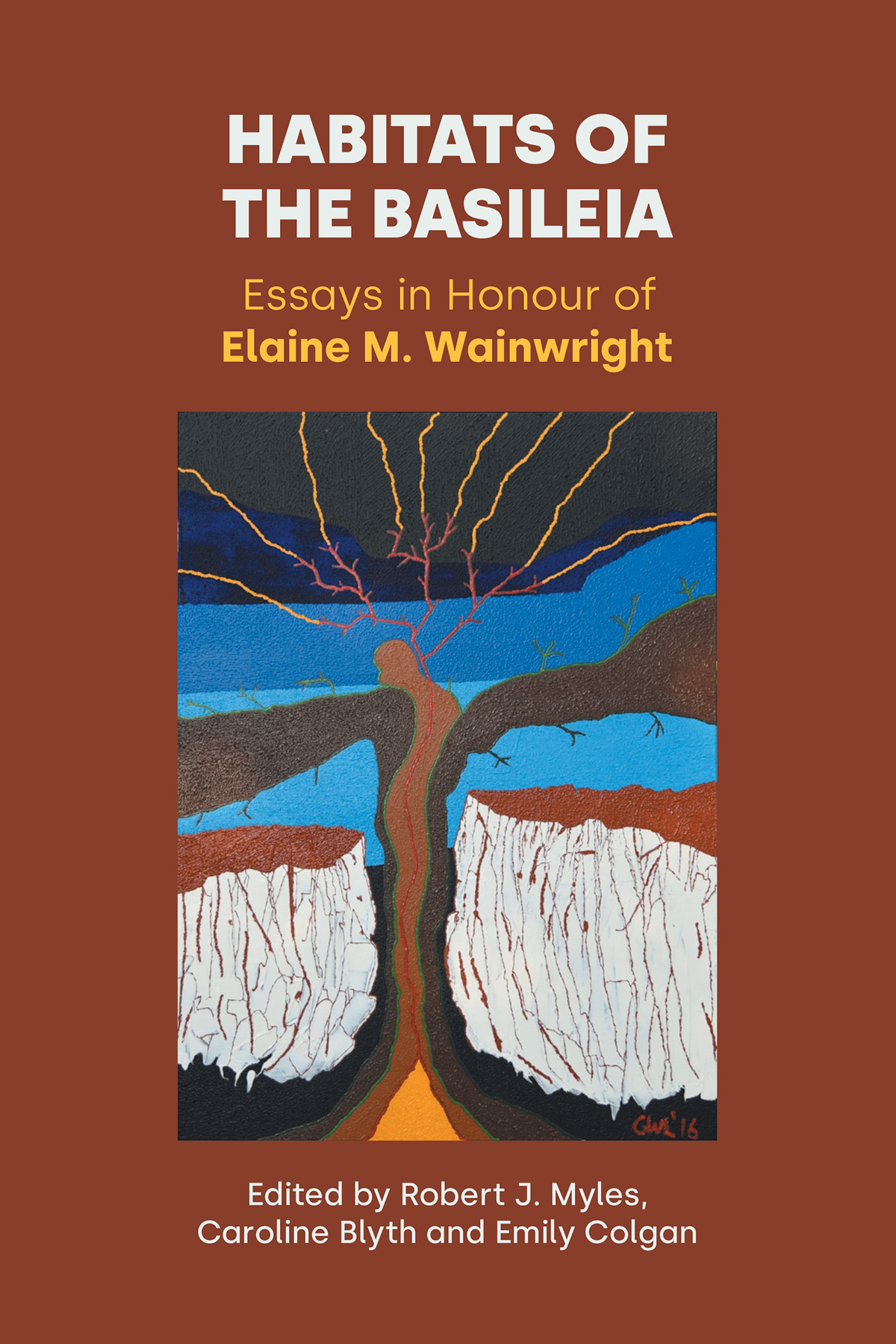




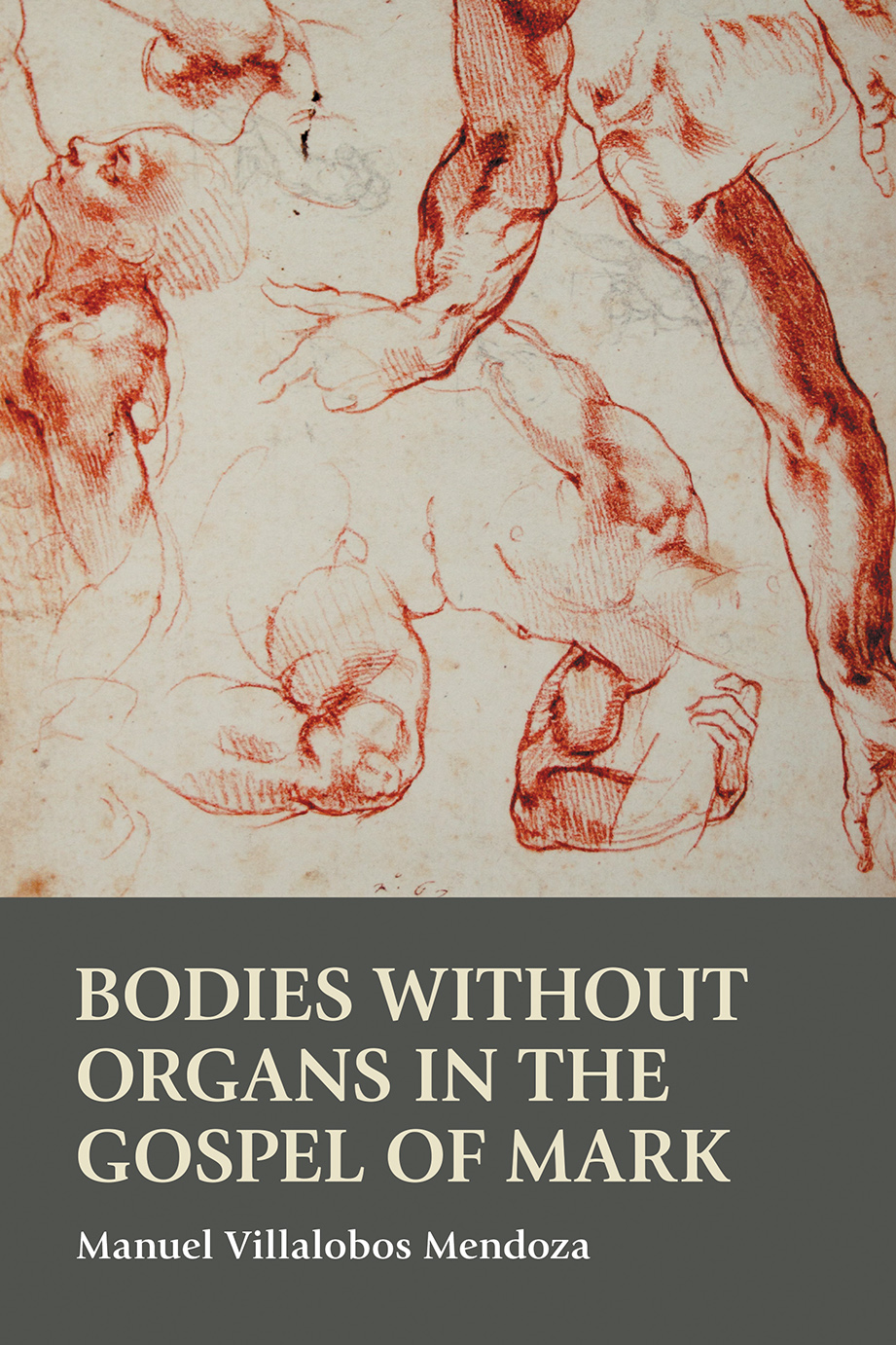
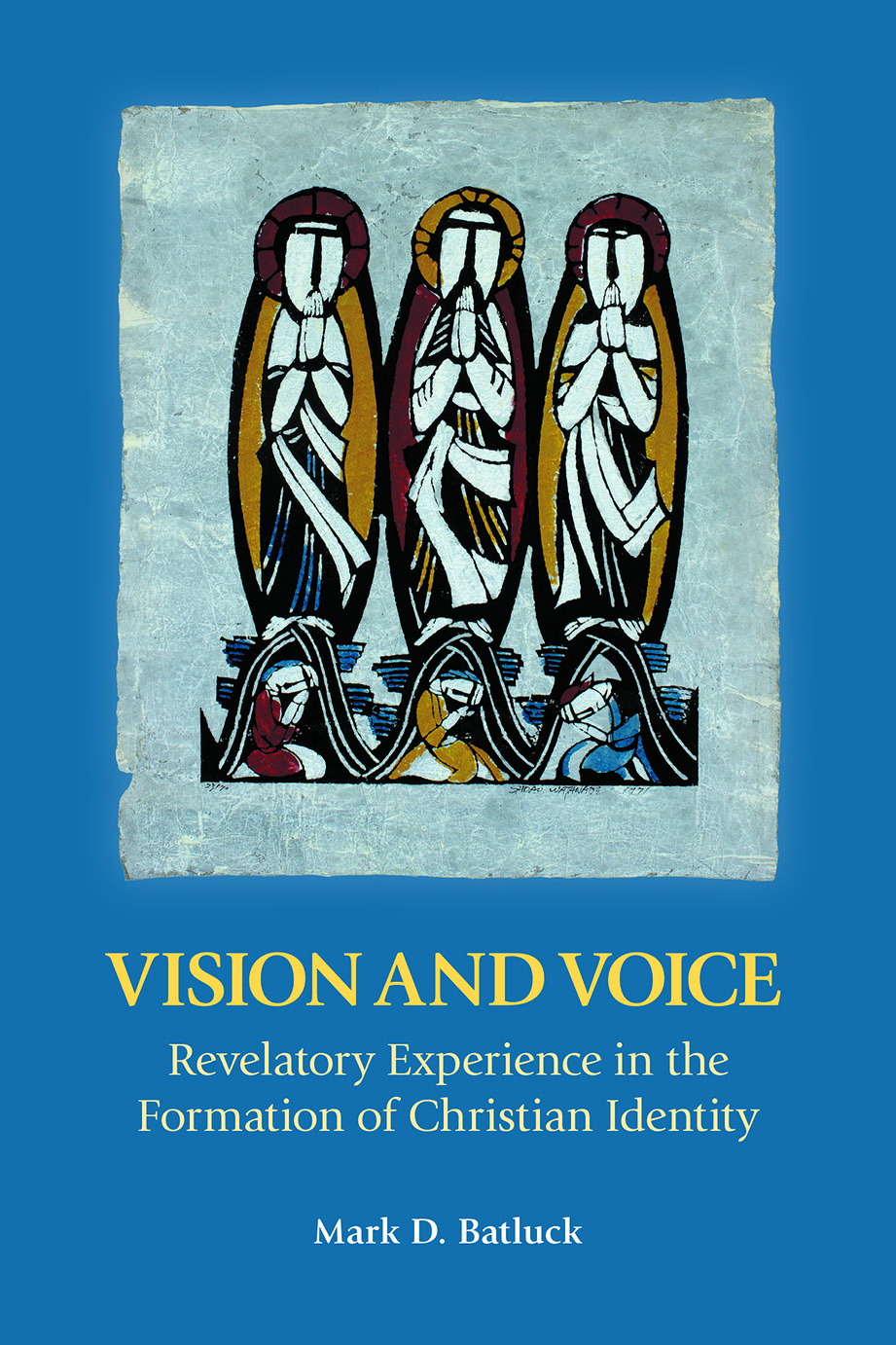
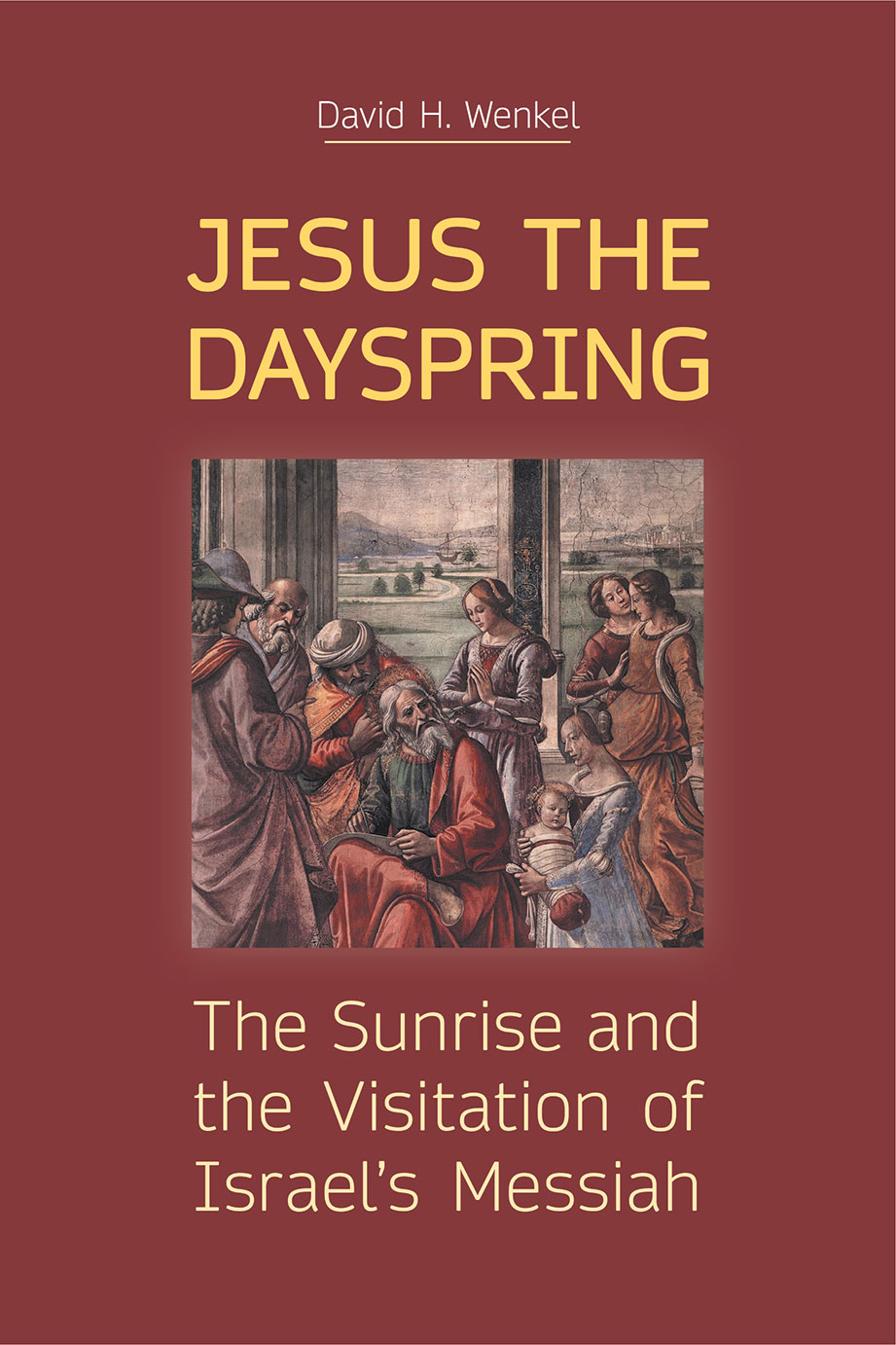
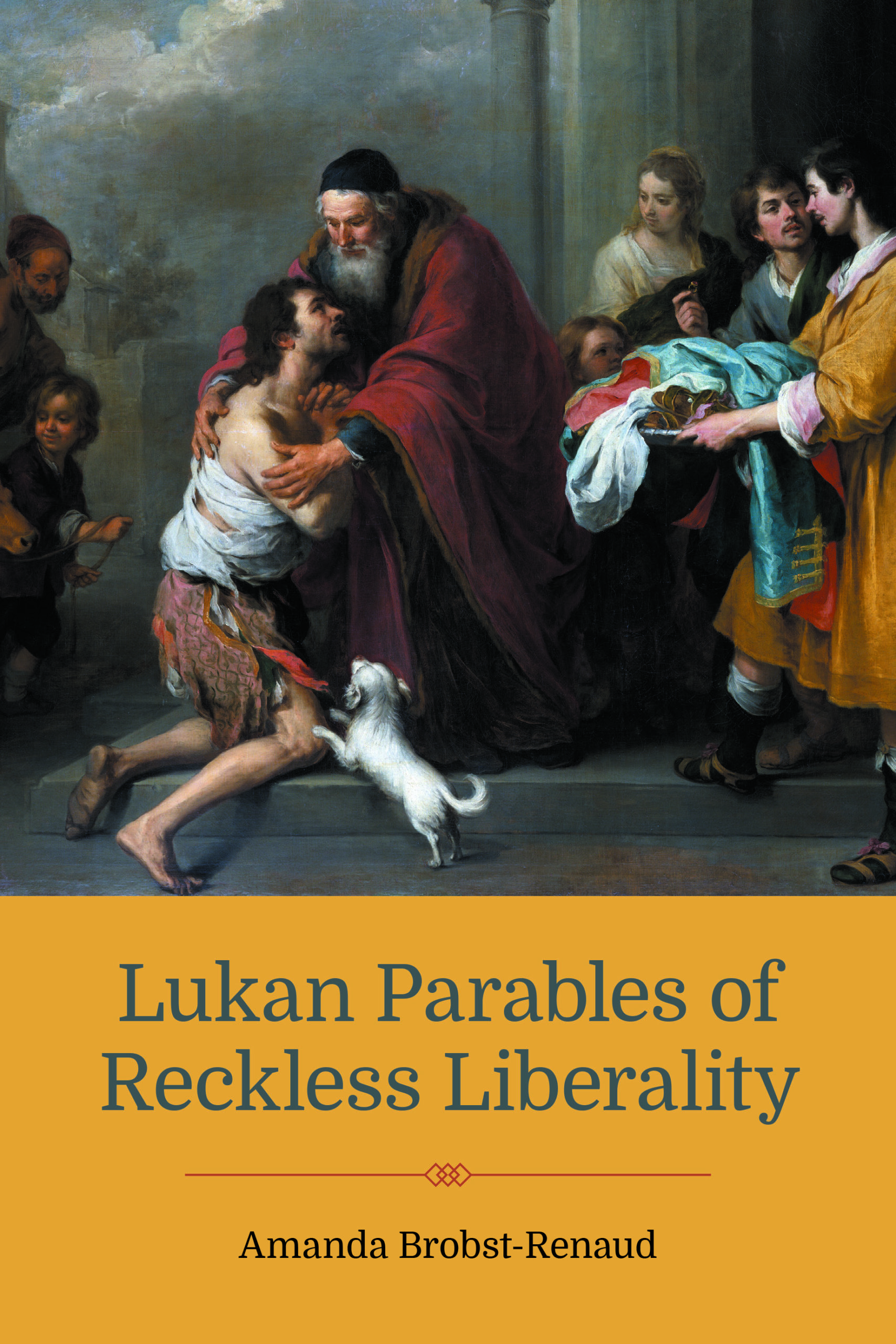

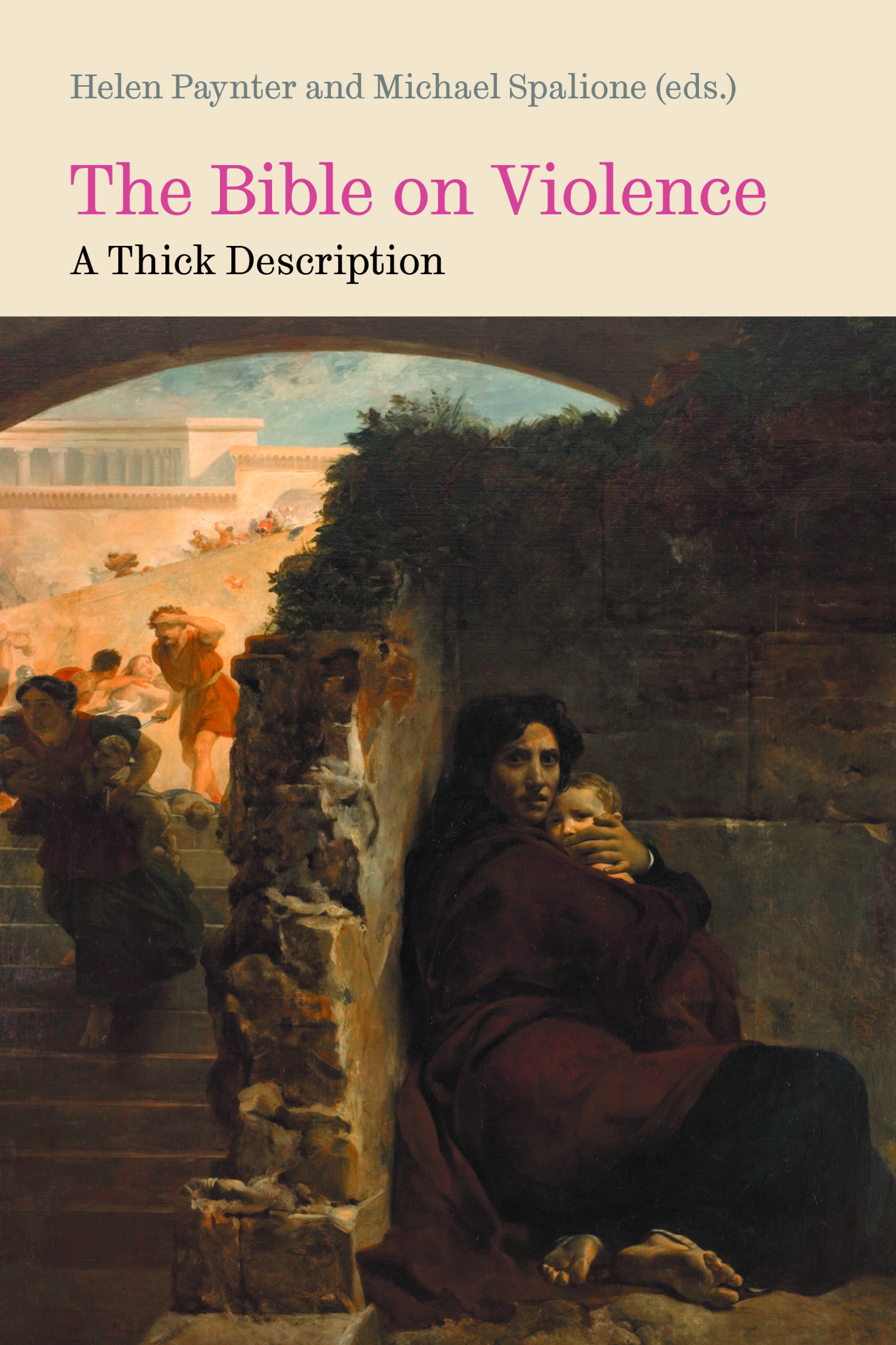
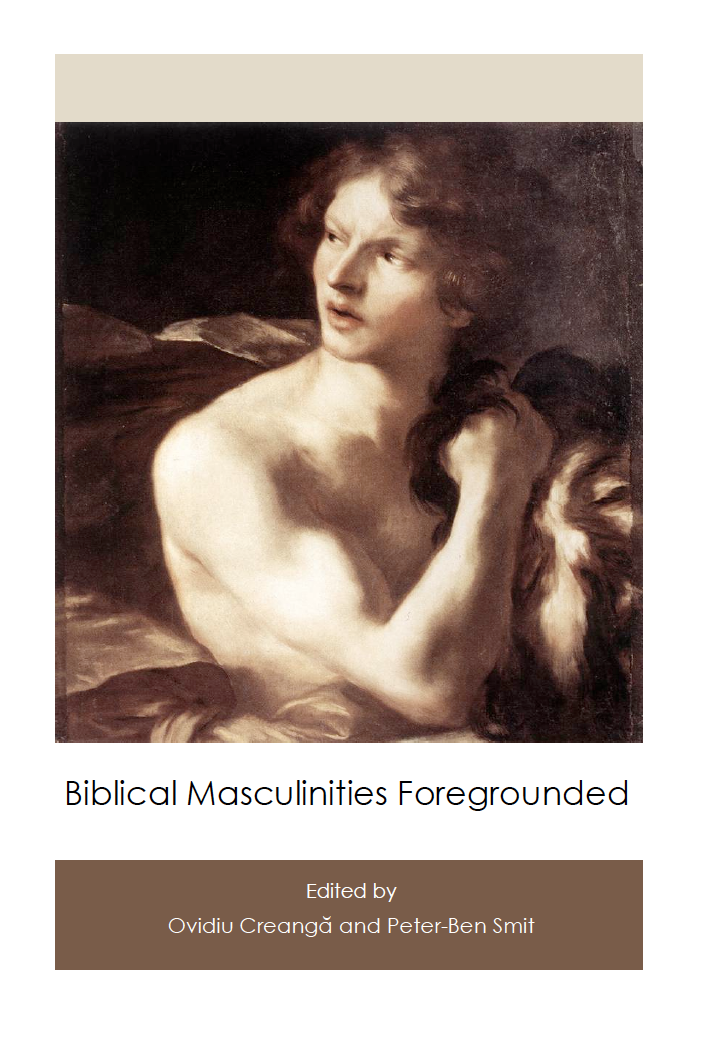
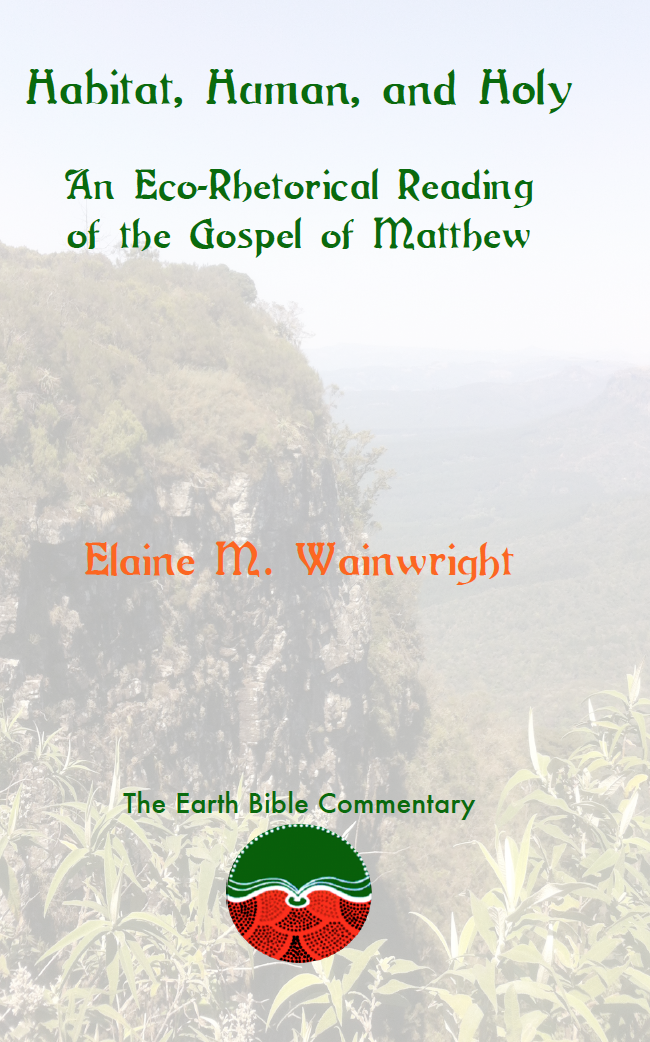
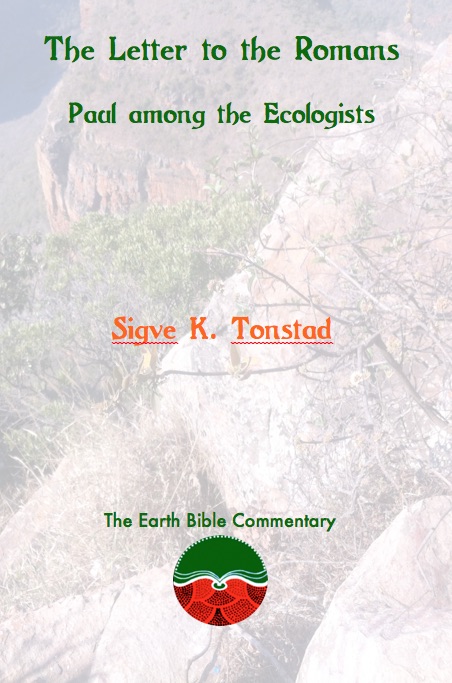

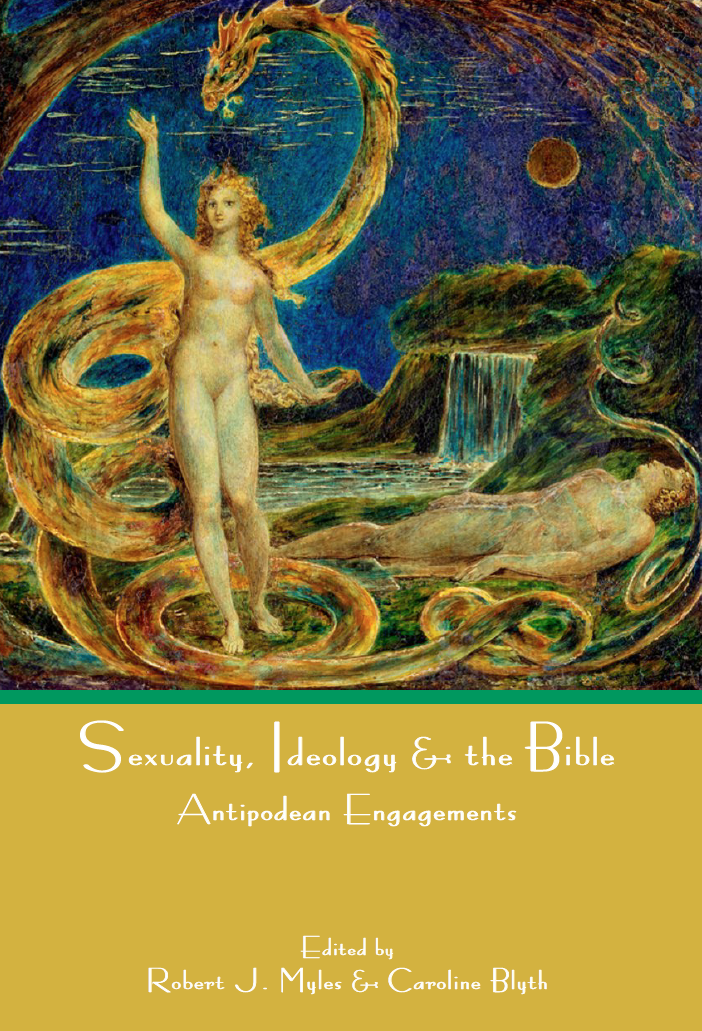

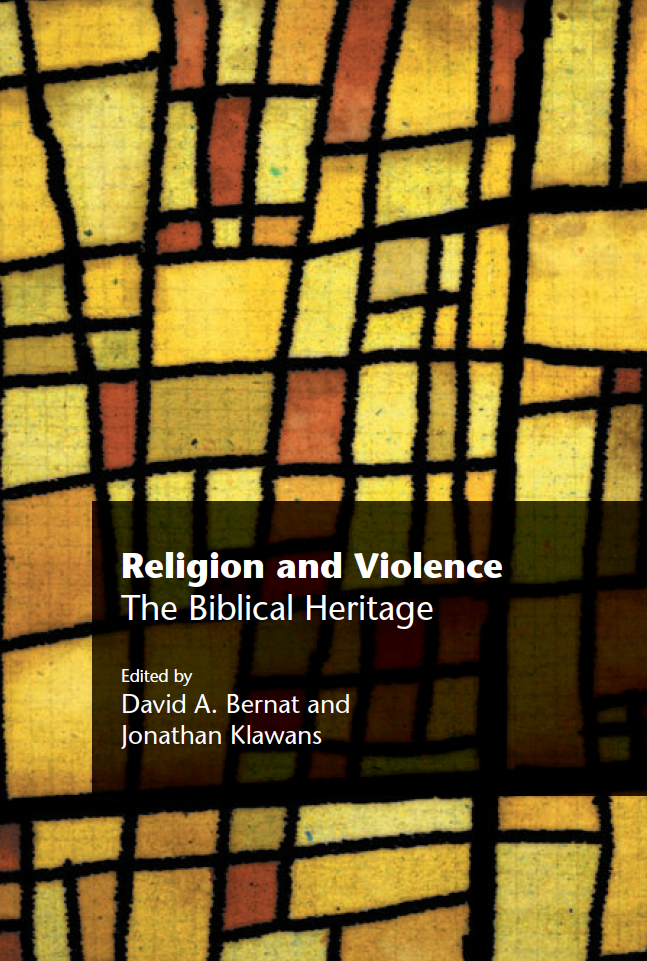
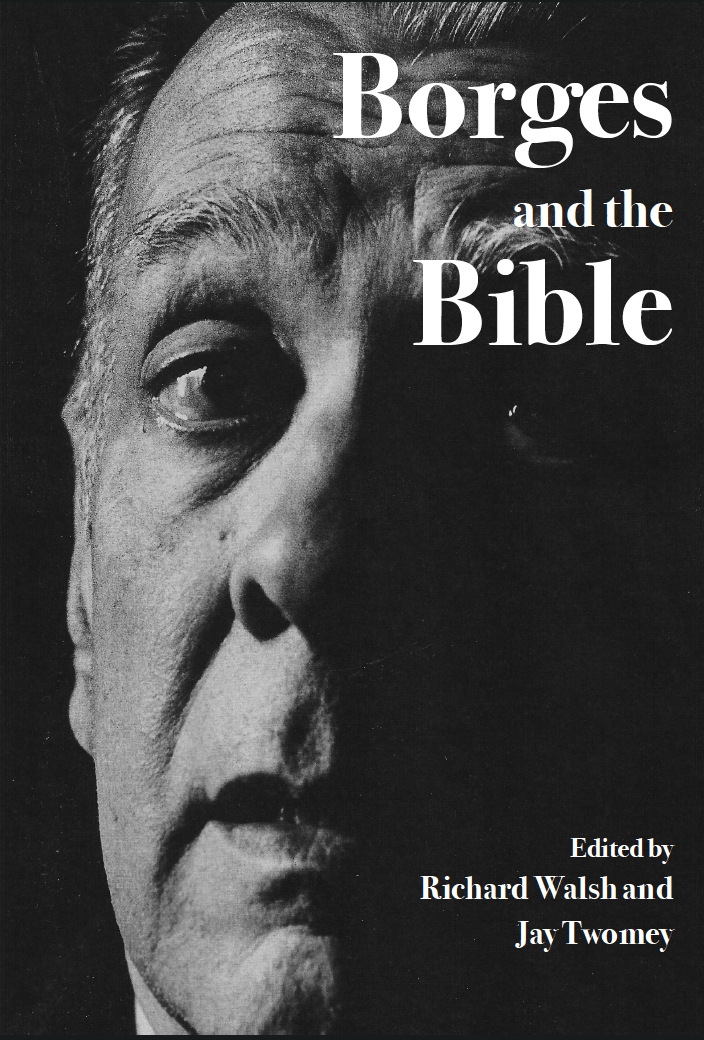
First and Second Peter: An Oral and Performance Commentary
£55.00Original price was: £55.00.£23.00Current price is: £23.00.First and Second Peter: An Oral and Performance Commentary
£55.00Original price was: £55.00.£23.00Current price is: £23.00.